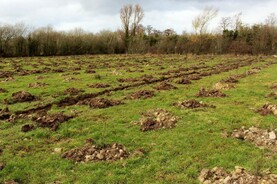Farmers in the Cooley peninsula are on the warpath. On Friday next, 30 August, they are sending a convoy of tractors, lorries and cars, from the Cooley Kickhams GAA grounds to Louth County Council offices in Dundalk.
I’m not sure there will be too many bicycles on view, however, as the proposed greenway through the area is the issue that is mobilising farmers.
They look on the greenway as an impingement of their property rights. There are a patchwork of small farms in the area, Matthew McGreehan, a spokesman for the group, highlighted, and some of these will be split in half no matter which of the four proposed routes the greenway takes.
They highlight that these routes were designed without consultation with locals – not just landowners, householders too – who will also be affected in terms of their privacy.
Security
Security concerns are being cited too, as it offers the curious and perhaps nefarious with a new vantage point to observe when homes and farmyards are busy, and when they aren’t.
It’s a tough one.
The Cooley farmers say that the system of compulsory purchase orders (CPOs) in place for greenways take away their right to refuse what they describe as non-essential infrastructural development. In describing it as non-essential, the farmers in question are contrasting it with a railway or road.
Balancing the needs of society against the rights of the individual is perhaps the trickiest part of Government. The Cooley farmers say there is a national network of landowners and homeowners opposed to greenways in every corner of the country.
It is true that our growing and increasingly urbanised population needs facilities for walking, cycling, running and generally taking the air. It’s perhaps the flip side of the 15-minute city concept, which rural people blame for the difficulties in getting planning from any local authorities for a house on the family farm.
The residential zoned land tax (RZLT) fits right into this area of tension.
Some commentators seem to see farmers fighting the imposition of this eyewatering tax as a protected elite wanting special treatment.
The ever-increasing level of restriction on what people can do on their own land is also part of this debate. Drainage and land improvement, space for nature and rewetting, burning bushes and scrub removal are all contentious.
Then there are land designations and access to land for amenity.
We need a national conversation that respects the perspective of both individual landowners and wider society.






 This is a subscriber-only article
This is a subscriber-only article










SHARING OPTIONS: